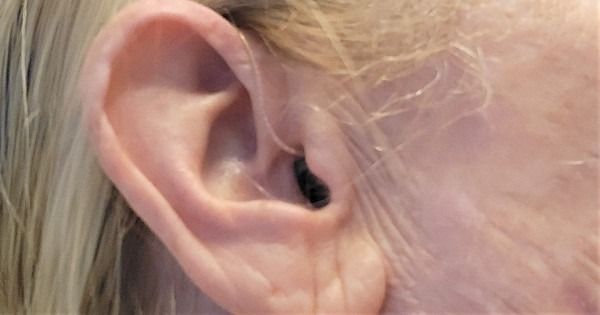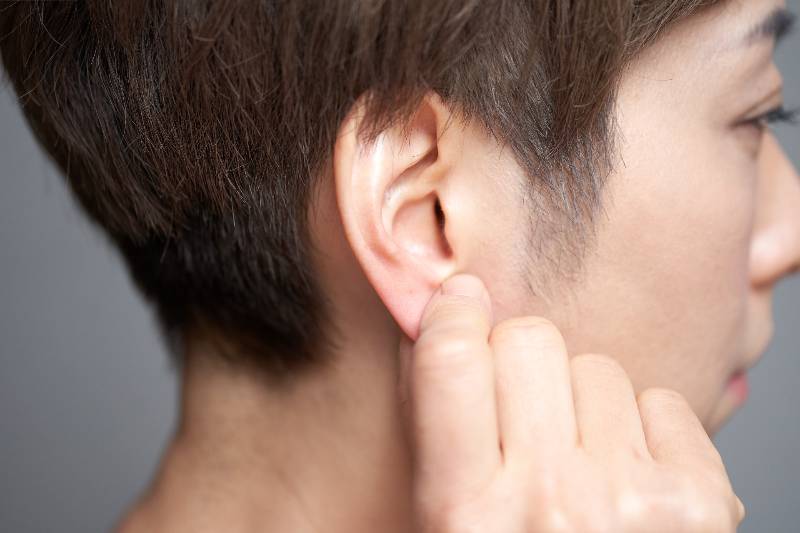Introduction
Meningitis and hearing loss are two serious health concerns that can significantly impact a child’s life. As a concerned parent, understanding the complex relationship between these conditions is essential for providing the best possible care and support to your child. This comprehensive exploration delves into various aspects of meningitis and hearing loss, from the emotional and social impacts on affected children to the latest advancements in research and technology aimed at improving detection and treatment. By providing a better understanding of these issues, we hope to empower parents to make informed decisions and advocate for their child’s well-being.
AMZ-Lexie Lumen Self-Fitting OTC Hearing Aids
Experience the Ultimate Sound Quality with Lexie Lumen self-fitting OTC hearing aids. These remarkable devices utilize dual microphones to deliver crystal clear sound, immersing you in a world of auditory excellence. Say goodbye to communication struggles in public spaces or on phone calls, as our Telecoil functionality directs speech directly to your hearing aids via an induction loop system. Rediscover the joy of hearing with unmatched clarity and precision.
Embrace an Active Lifestyle with Lexie Lumen hearing aids. Our cutting-edge sweatproof technology, including Nano coating, safeguards against moisture damage, allowing you to wear your hearing aids during outdoor activities like walks, runs, and open-air events. With Lexie, you can live life to the fullest without compromising on the quality or lifespan of your devices. Don’t let hearing loss hold you back—experience the freedom of superior hearing with Lexie Lumen self-fitting OTC hearing aids.
Navigating the Emotional and Social Impact of Meningitis-Related Hearing Loss
The emotional and social impact of meningitis-related hearing loss can be significant for both the child and their family. Children with hearing loss may experience feelings of isolation, frustration, and low self-esteem, which can affect their social interactions and academic performance. Parents should be aware of these challenges and provide a supportive and understanding environment for their child. Seeking support from professionals, such as audiologists, speech-language pathologists, and psychologists, can help families navigate the emotional and social challenges associated with meningitis-related hearing loss.
In addition, connecting with other families who have experienced similar situations can offer invaluable support, encouragement, and practical advice. Encouraging open communication and fostering strong relationships within the family can also help build a solid foundation for dealing with the challenges that may arise. By offering guidance and understanding, parents can help their child successfully navigate the emotional and social impacts of meningitis and hearing loss.
Tinnitus: why it’s still such a mystery to science
The Future of Cochlear Implants for Meningitis-Related Hearing Loss
Cochlear implants have revolutionized the treatment of severe hearing loss, particularly in cases where hearing aids are not effective. For children who have experienced meningitis-related hearing loss, cochlear implants can provide a new opportunity for communication and social interaction. Advances in cochlear implant technology are constantly evolving, leading to improved performance and better outcomes for patients.
Researchers are working on improving the effectiveness of cochlear implants by enhancing the devices’ ability to process and transmit sound information. In addition, they are exploring ways to minimize the invasiveness of the implantation procedure and reduce the risk of complications. As the field of cochlear implant research advances, it is expected that the technology will continue to improve, providing even
The Importance of Multidisciplinary Collaboration in Meningitis and Hearing Loss Research
The complex relationship between meningitis and hearing loss requires a multidisciplinary approach to research and treatment. Experts from various fields, such as infectious diseases, audiology, neuroscience, and rehabilitation, must collaborate to develop a comprehensive understanding of the mechanisms underlying meningitis-related hearing loss and identify effective prevention and treatment strategies.
Multidisciplinary collaboration promotes the sharing of knowledge and resources, leading to more efficient and targeted research efforts. By working together, researchers can develop a more holistic understanding of the challenges faced by individuals with meningitis and hearing loss and identify innovative solutions to address these challenges. This collaborative approach is critical in driving advancements in the field and improving the lives of those impacted by meningitis and hearing loss.
The Potential of Gene Therapy for Addressing Meningitis-Induced Hearing Loss
Gene therapy has emerged as a promising avenue of research for addressing various genetic disorders, including certain forms of hearing loss. In the context of meningitis-induced hearing loss, gene therapy could potentially help to prevent or reverse the damage caused by the infection. While the research in this area is still in its early stages, preliminary studies have shown promise in using gene therapy to target and repair damaged auditory cells.
As researchers continue to investigate the potential applications of gene therapy for meningitis-related hearing loss, it is hoped that these advancements will lead to new and effective treatment options. With further research and development, gene therapy could one day provide a targeted and minimally invasive solution for addressing hearing loss caused by meningitis.
Technologies Aiding in the Detection and Management of Meningitis and Hearing Loss
The development of innovative technologies has significantly impacted the way meningitis and hearing loss are detected and managed. Early detection of meningitis and hearing loss is crucial for implementing effective treatment strategies and minimizing
long-term consequences. New diagnostic tools, such as advanced imaging techniques and molecular testing, allow for faster and more accurate identification of meningitis, enabling prompt initiation of appropriate treatment.
In the realm of hearing loss management, advancements in hearing aid technology and cochlear implants have improved the quality of life for many individuals affected by meningitis-related hearing loss. These devices have become more sophisticated, providing better sound quality and more seamless integration with other electronic devices. Additionally, mobile applications and telehealth services have made it easier for patients to access support and resources, enabling more effective management of their hearing loss.
As technology continues to advance, it is anticipated that even more innovative tools and therapies will emerge, further improving the detection and management of meningitis and hearing loss.
Meningitis and Hearing Loss: Unraveling the Connection
Understanding the connection between meningitis and hearing loss is essential for developing effective prevention and treatment strategies. Meningitis, an inflammation of the protective membranes surrounding the brain and spinal cord, can result from various bacterial, viral, or fungal infections. One of the possible complications of meningitis is sensorineural hearing loss, which occurs when the inner ear or the auditory nerve is damaged.
The exact mechanism through which meningitis leads to hearing loss is not entirely understood, but it is believed to involve damage to the hair cells in the inner ear and the auditory nerve. Inflammation caused by the infection may lead to a reduction of blood flow to the inner ear, depriving the delicate hair cells of oxygen and nutrients. Additionally, the infection may directly damage the hair cells and the auditory nerve. Further research is needed to fully understand the complex relationship between meningitis and hearing loss and to identify ways to prevent and treat this serious complication.
Conclusion
In summary, the world of meningitis and hearing loss is a complex one that requires a comprehensive and multidisciplinary approach. Parents must be aware of the emotional and social challenges their child may face and seek support from professionals and other families who have gone through similar experiences. Advances in technology and research continue to improve the detection and management of both meningitis and hearing loss, providing hope for better outcomes in the future. As our understanding of the connection between meningitis and hearing loss grows, so too does the potential for improved prevention and treatment strategies. By staying informed and engaged, parents can play a critical role in helping their child navigate the challenges of meningitis and hearing loss and lead a fulfilling life.







